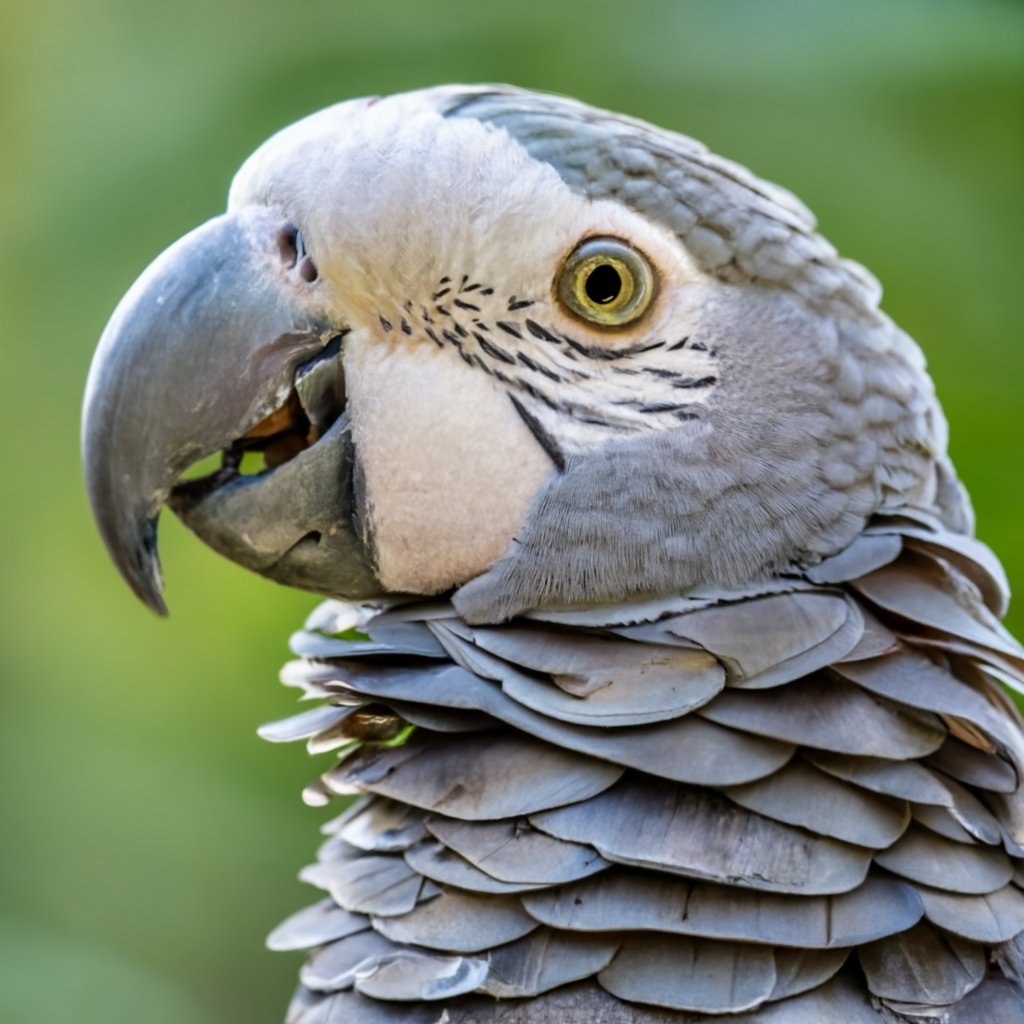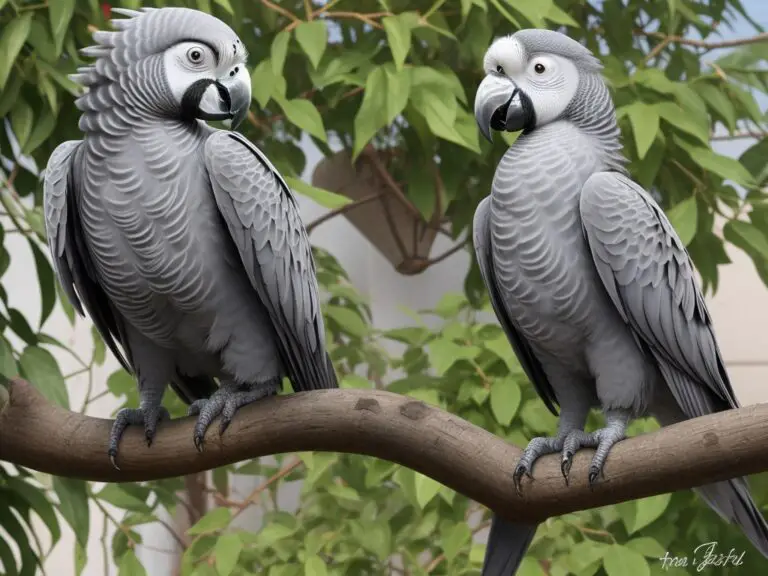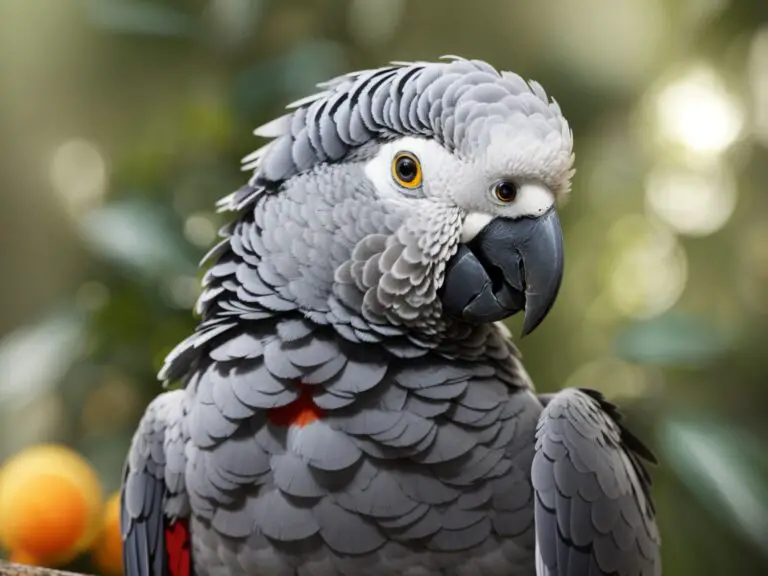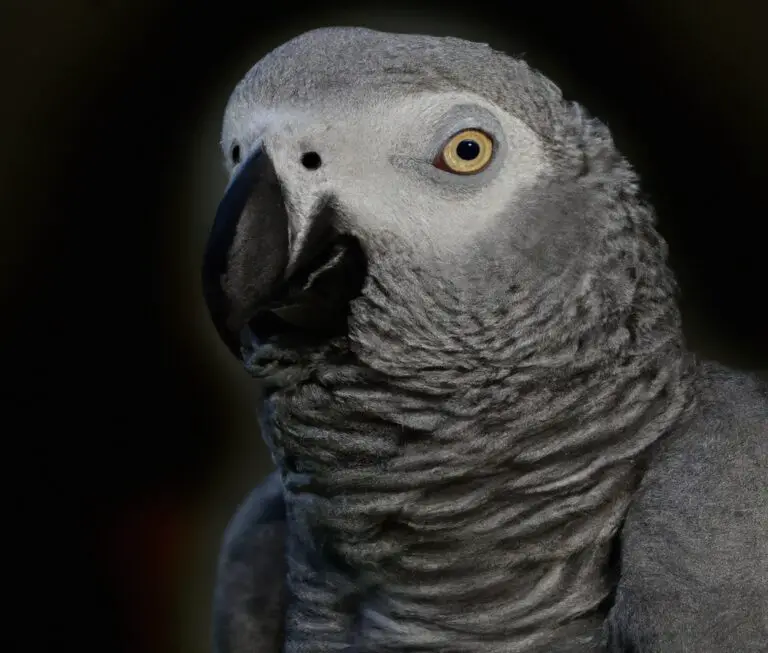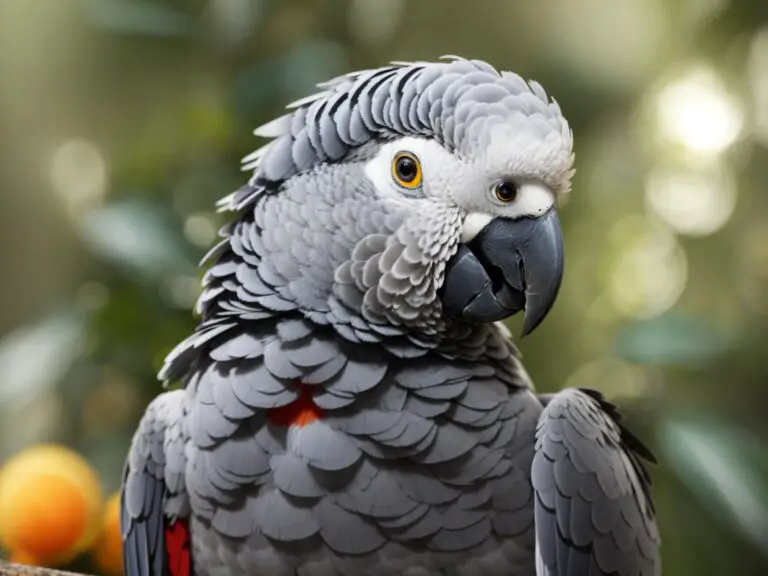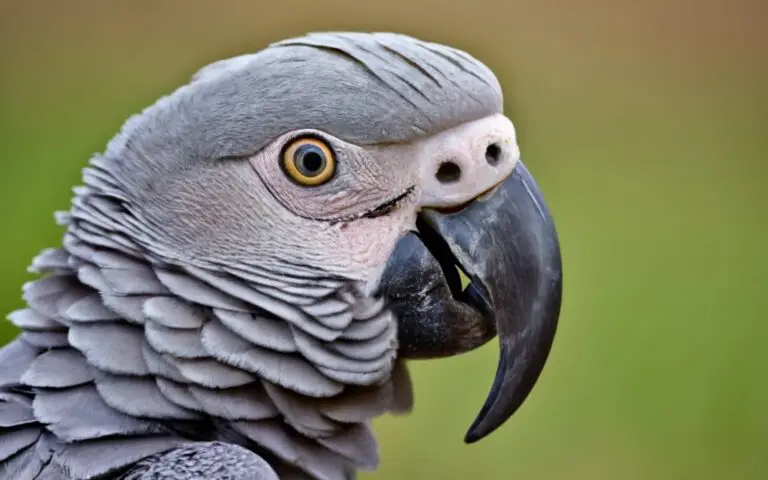How To Stop Feather Plucking In African Grey Parrots?
Key Takeaways:
- 1) Environmental enrichment and mental stimulation are key in preventing feather plucking in African grey parrots.
- 2) Regular veterinary check-ups can help identify any underlying health issues contributing to feather plucking behavior.
- 3) Positive reinforcement and behavior modification techniques can be effective in redirecting a parrot’s focus away from feather plucking.
- 4) A balanced diet containing essential nutrients is crucial for maintaining healthy feathers and preventing feather plucking in African grey parrots.
Do you own an African grey parrot that is suffering from feather plucking?
It can be distressing to witness your beloved pet engaging in this behavior, but there are ways to help them stop.
In this article, we will explore the causes of feather plucking in African grey parrots, as well as provide practical tips and strategies to prevent and address this behavior.
From creating a suitable environment to providing a nutritious diet, we will cover all the essential steps you can take to assist your feathered friend.
So, let’s dive in and learn how to put an end to feather plucking once and for all!
| Methods | Description | |
|---|---|---|
| 1. | Provide a stimulating environment | Offer toys, puzzles, and chewable items to keep the bird occupied and mentally engaged. |
| 2. | Ensure a well-balanced diet | Feed a nutritious and varied diet consisting of fruits, vegetables, pellets, and limited amounts of seeds. |
| 3. | Monitor socialization and behavior | Allow for appropriate social interaction, avoid stressors, and provide positive reinforcement for good behavior. |
| 4. | Address potential medical issues | Consult with an avian veterinarian to rule out any underlying health conditions that may contribute to feather plucking. |
| 5. | Use deterrents and distractions | Apply bitter sprays, use collars, or employ distractions like music or television to redirect the bird’s focus. |
| 6. | Implement behavior modification techniques | Engage in positive reinforcement training and use cage accessories to discourage feather plucking. |
Understanding the Feather Plucking Behavior in African Grey Parrots
Feather plucking is a common behavior in African Grey Parrots where they compulsively pull out their own feathers.
Understanding why African Grey Parrots engage in feather plucking can help address the issue effectively.
What is feather plucking?
Feather plucking is a behavior in which African Grey Parrots excessively chew, bite, or pull out their own feathers. It can range from mild to severe and is often a sign of underlying stress, boredom, or health issues.
Why do African Grey Parrots engage in feather plucking?
African Grey Parrots engage in feather plucking due to various reasons, such as boredom, stress, anxiety, health issues, and environmental factors.
Feather plucking can be a self-soothing behavior or a way to seek attention.
Identifying the underlying cause is essential in addressing this behavior and finding effective solutions.
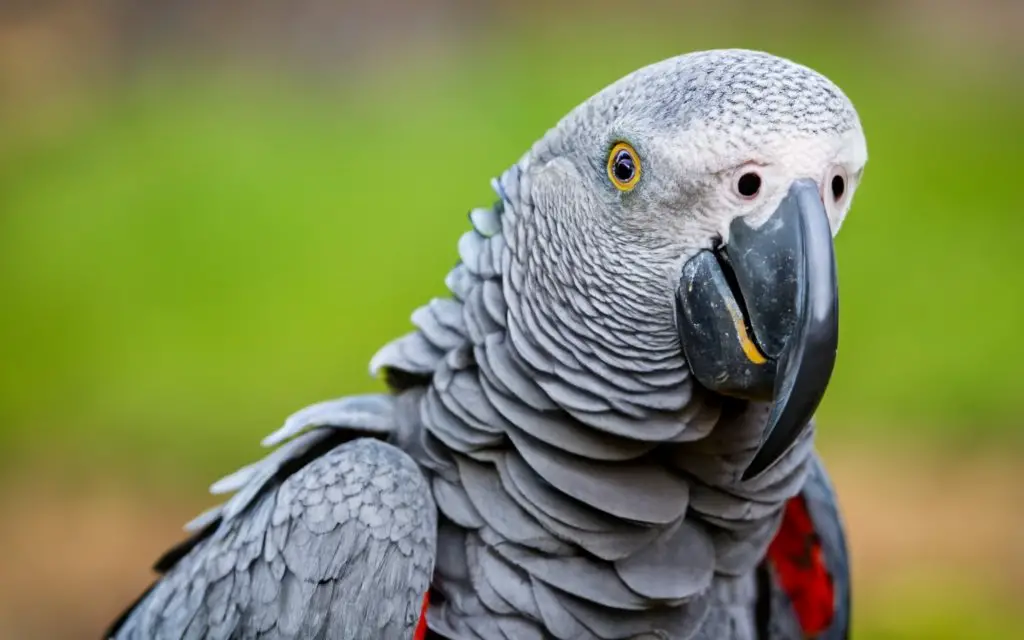
Signs and symptoms of feather plucking in African Grey Parrots
Feather plucking is a common behavior seen in African Grey Parrots. Some signs and symptoms include excessive preening, bald patches, broken feathers, and irritated or red skin.
Other indicators may include aggression, depression, and loss of appetite.
Keeping an eye out for these signs can help identify and address feather plucking in your parrot.
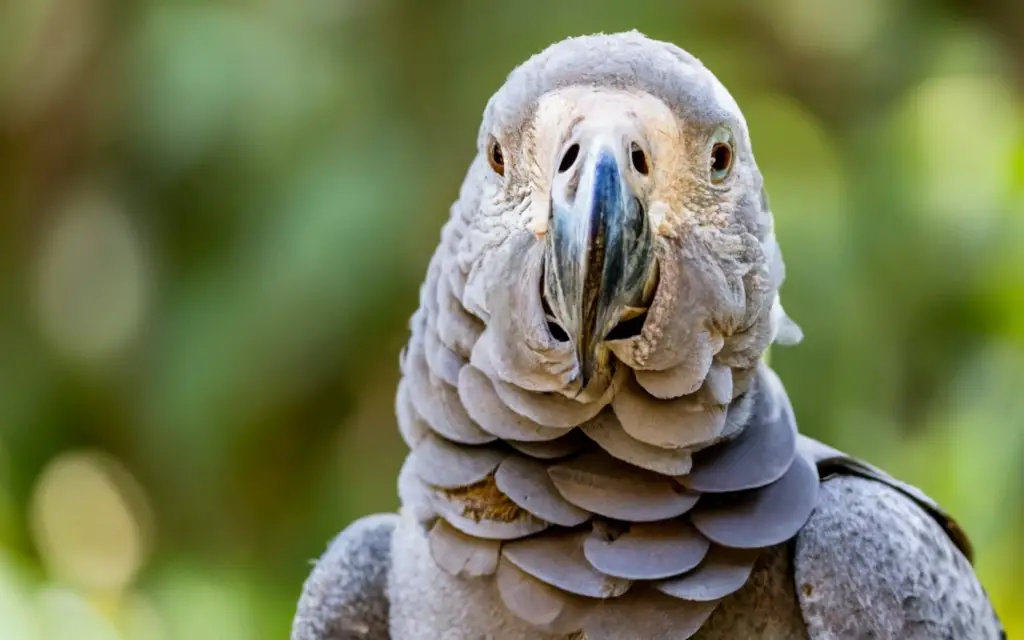
Creating a Suitable Environment for African Grey Parrots
Creating a suitable environment for African Grey Parrots involves providing a spacious cage and perches.
Providing a spacious cage and perches
A spacious cage is essential for African Grey Parrots. It should be large enough for them to stretch their wings and move around comfortably.
Perches of varying sizes and textures are also important to promote foot health and exercise.
Offering mental stimulation and enrichment
To offer mental stimulation and enrichment for African Grey Parrots, provide a variety of toys, including puzzle toys and foraging toys.
Rotate the toys regularly to keep them engaged.
Offer daily interaction and training sessions to stimulate their minds.
Allow them to explore their environment and provide opportunities for social interaction with you and other birds.
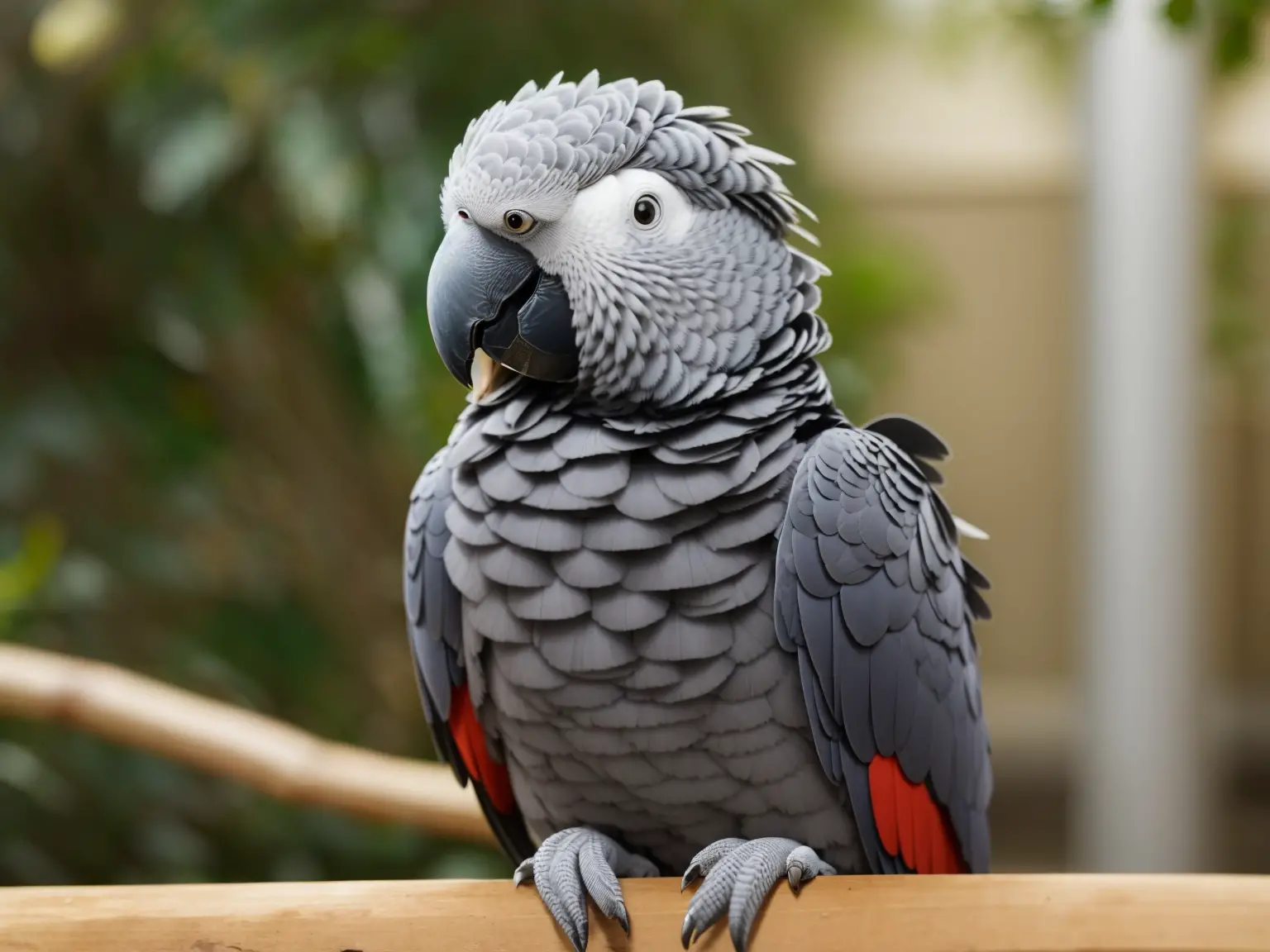
Maintaining a consistent routine and social interaction
Maintaining a consistent routine and social interaction is vital for African Grey Parrots. Establish a daily schedule for feeding, exercise, and playtime.
Interact with your parrot regularly through talking, playing, and training sessions.
Provide opportunities for socialization by introducing your parrot to new people and environments. Regular and predictable routines can help reduce stress and provide a sense of stability for your parrot.
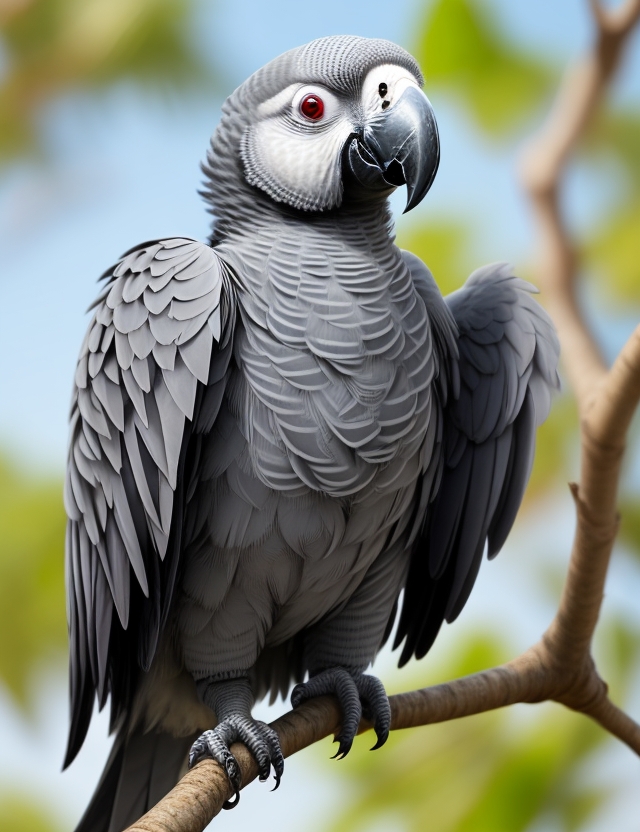
Providing a Nutritious Diet for African Grey Parrots
To provide a nutritious diet for African Grey Parrots, offer a variety of fresh fruits, vegetables, and grains.
Avoid excessive consumption of high-fat foods.
Understanding the dietary requirements of African Grey Parrots
African Grey Parrots have specific dietary needs to stay healthy. They require a balanced diet that includes a variety of fresh fruits, vegetables, and grains.
It’s important to avoid high-fat foods and provide enough protein.
Regularly offering fresh water is essential. Consulting with an avian veterinarian can help you create a suitable diet plan for your African Grey Parrot.
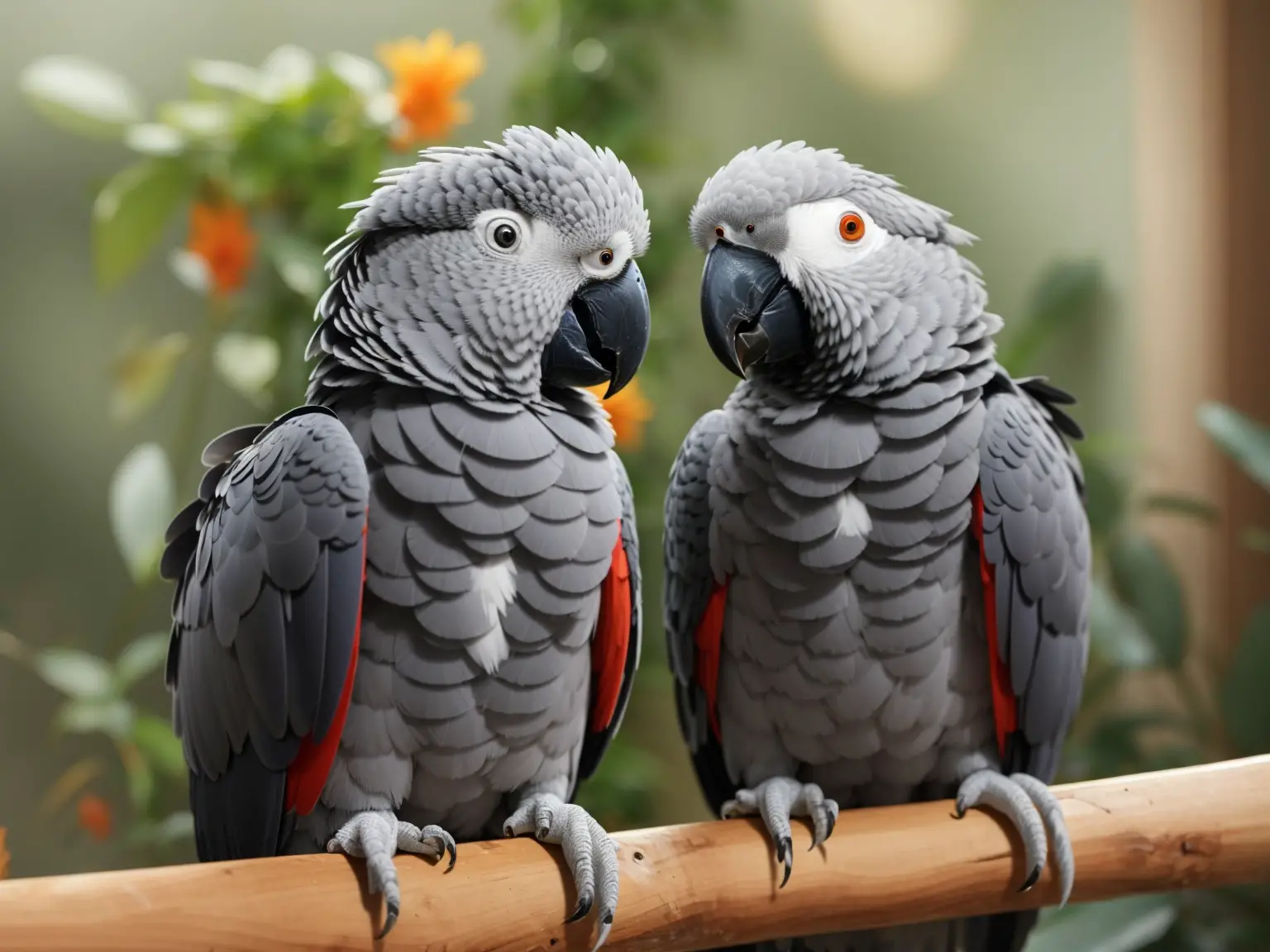
Avoiding excessive consumption of high-fat foods
To avoid excessive consumption of high-fat foods, it’s important to be mindful of what you offer your African Grey Parrot. Limit fatty treats like nuts, seeds, and oily foods.
Focus on providing a balanced diet with fresh fruits, vegetables, and grains.
Consult with an avian veterinarian for specific dietary recommendations.
Developing Preventive Measures for Feather Plucking
To prevent feather plucking in African grey parrots, focus on regular veterinary check-ups, minimizing stress triggers, and using positive reinforcement and distraction techniques.
Regular veterinary check-ups and health monitoring
Regular veterinary check-ups and health monitoring are essential for African Grey Parrots. By scheduling routine visits to an avian veterinarian, you can ensure that your parrot’s overall health is monitored and any potential issues are detected early.
During these check-ups, the vet will perform a thorough examination, including checking the feathers, skin, beak, and nails.
They may also recommend additional tests or screenings to assess your parrot’s overall well-being. Monitoring your parrot’s health regularly is crucial in preventing and addressing any potential feather plucking issues.
Minimizing stress and anxiety triggers
To minimize stress and anxiety triggers in African Grey Parrots, create a calm and predictable environment. Provide enough space in their cage and offer various perches for stimulation.
Keep a consistent routine and ensure regular social interaction.
Avoid sudden changes or disruptions in their environment. Use positive reinforcement and distraction techniques to redirect their attention.
Using positive reinforcement and distraction techniques
Positive reinforcement and distraction techniques are effective in stopping feather plucking in African Grey Parrots. Use rewards, such as treats or praise, to reinforce good behavior and redirect the parrot’s attention with toys or activities.
Consistency and patience are key in implementing these techniques.
Seeking Professional Help for Feather Plucking
Potential medical interventions and behavioral therapies
Potential medical interventions for feather plucking in African Grey Parrots include medication to address underlying health issues, such as infections or allergies.
Behavioral therapies focus on identifying triggers and providing alternative behaviors, like providing toys for preening or engaging the parrot in interactive play.
Consistency and patience are key in implementing these interventions.
Final Verdict
Understanding feather plucking behavior in African Grey Parrots is crucial to addressing and preventing this issue. Creating a suitable environment, providing a nutritious diet, and implementing preventive measures are key to stopping feather plucking.
Seeking professional help, such as consulting with an avian veterinarian or avian behaviorist, can also be beneficial.
While it may take time and patience, with the right approach and care, feather plucking in African Grey Parrots can be stopped or minimized. By prioritizing their well-being and implementing the steps discussed, we can help these beautiful birds thrive and live happily.

